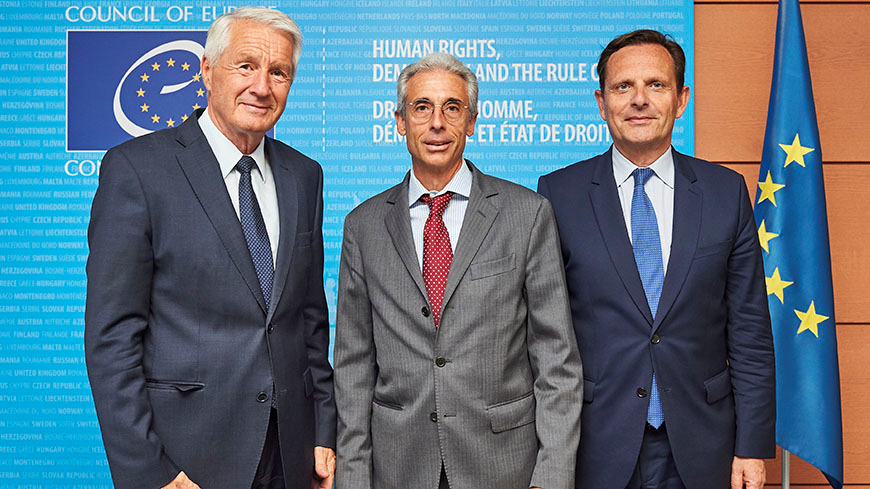“Increased inequality is a major challenge for Europe and social rights’ protection across the Continent should be a top priority. I call on our member states for more commitment to the Social Charter”, highlighted Secretary General Thorbjørn Jagland, on the 20th anniversary of the Revised Social Charter’s entry into force.
Social rights and social progress are, since 1949, one the of the Council of Europe’s aims and primary tools intended to be a “source of individual freedom, political liberty and the rule of law” as bases of “genuine democracy”, as stated in Council of Europe’s foundational Statute. Social progress - and the protection of social rights and social justice - are not only a hallmark of democracy but also an indicator of its functioning. If social progress fails and social rights are not protected or social justice is not delivered, the operational link between people and elected representatives appears broken.
“The entry into force of the Revised European Social Charter was the culmination of a reform and modernisation process, which defined new rights under international human rights law and set up the mechanisms for their effective monitoring. It up-graded the protection of social rights to meet 21st century needs”, underlined the President of the European Committee of Social Rights, Giuseppe Palmisano.
“The Committee of Ministers reaffirmed unequivocally in Helsinki the importance of social rights across the continent and invited those member states which have not yet done so to consider signing and ratifying the Revised European Social Charter and its Additional Protocol providing for a system of collective complaints. The promotion of social rights is one of the priorities of the French Presidency of the Committee of Ministers and as such, an event will be organised on 19 September on the theme “Strengthening the protection of social rights in Europe for greater unity and equality””. added Ambassador Jean-Baptiste Mattéi.
Background:
The European Social Charter is a Council of Europe treaty signed in Turin on 18 October 1961 which safeguards day-to-day freedoms and fundamental rights: decent housing, healthcare, safety at work, education and training, employment, legal and social security, protection against poverty and exclusion, freedom of movement for individuals, non-discrimination and equal pay. The substance of the Charter was up-dated by the Revised European Social Charter of 1996, which entered into force on 1 July 1999.
The European Committee of Social Rights is a body composed of 15 independent and impartial members. It rules on the conformity of the law and practice of the States Parties with the Charter. The Committee has two procedures to ensure that States Parties comply with their commitments under the Charter: national reports and collective complaints. In the framework of the reporting procedure it adopts “conclusions” and in respect of the collective complaints procedure it adopts “decisions”. The Protocol which came into force in 1998, allows national and international trade union organisations, employers’ organisations and non-governmental organisations to submit to the Committee their complaints about violations of the Charter. Not all Council of Europe member states have accepted all the provisions of the Charter nor the collective complaints procedure.




